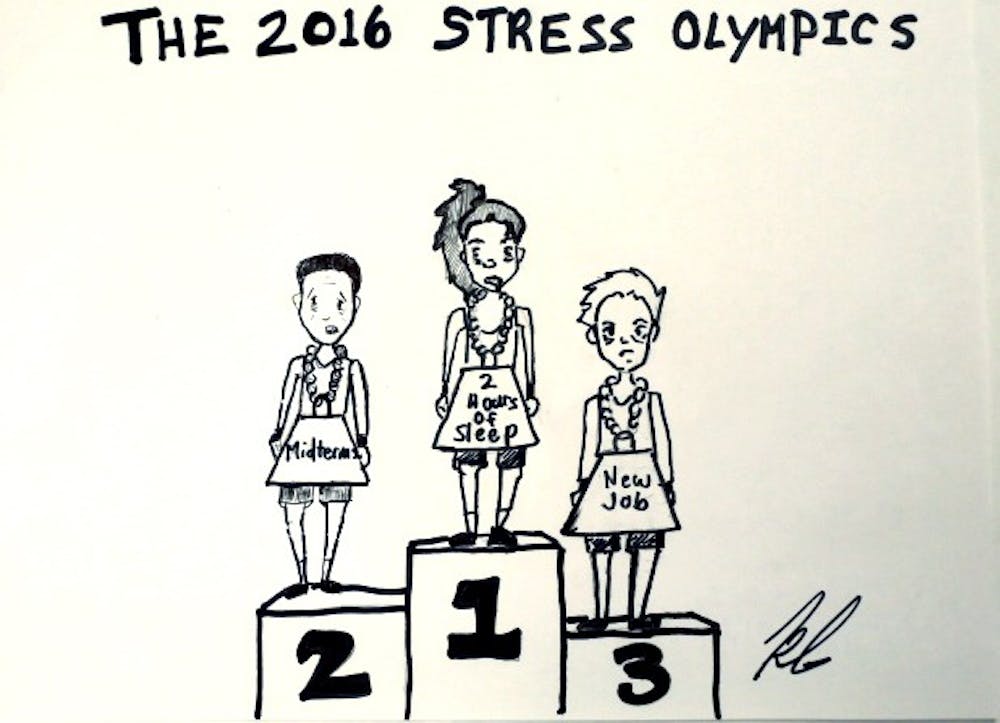A row of ducks swim downstream. Each one sees the duck directly in front of it, as well as other ducks further ahead. Looking forward at the other ducks, it’s difficult to discern that though they appear to be gliding effortlessly, their webbed feet thrash feverishly beneath the water to keep up.
A harsh reality on college campuses is that the efforts our peers put forth are invisible, and we only see their nonchalant actions. At Stanford, they coined the term “duck syndrome” to describe this.
There are meaningful conversations to be had about the stresses of college life. However, we have found ourselves in the middle of harmful dialogue about workload and stress far too often on this campus.
“I've gotten two hours of sleep the last three nights!”
“Why would you stay up so late studying? The test is going to be so easy!”
“You studied that much and still didn’t do well? I didn’t study at all, and I got an A!”
Whether someone humble-brags about their exhaustion or trivializes someone else’s efforts, these conversations are detrimental to our mental health and our success as students.
Stress thrives in a cycle of anxiety that keeps you awake all night followed by depression that exhausts you all day.
At a time when the emotional health of college students is worse than ever, it is easy to point fingers. The harsh reality, though, is that these issues run much deeper than college campuses. The glorification of being busy and the stress culture that thrives on campuses across the country are pervasive societal issues. We have bosses who equate hours spent in the office with worth and professors who assign far too much homework — in many ways, our workload is out of students’ control. What we can change now is the way that we approach these issues.
As a student body, we can make ourselves aware of what we’re doing. Because we’re all thrashing our feet to keep up, and no one is slowing down. In the end, all of the ducks will reach the river’s end.
Telling people to truly be aware is something much more easily said than done. Even after discussing this editorial idea, we have caught ourselves still divulging in humble-brag discussions.
Related: How The State Press staff relieves stress
Even if paddling mercilessly is physically taxing, at some point it becomes a default setting. It is when these problematic cultural norms become our defaults that they become entrenched into our collective psyche.
As students, we will be the next wave of leaders in the world. It is on us to stand up and make a change, because the so-called “real world” beyond graduation has it wrong, too. If we continue to perpetuate the current state of affairs as students, then they will surely remain in tact long after we graduate.
We have the power to change the way we approach stress, busyness and mental health. We are optimistic that an army of Sun Devils can enact meaningful change on campus and in society. After all, it only takes one duck to slow down the entire row.
Want to join the conversation? Send an email to opiniondesk.statepress@gmail.com.
Keep letters under 300 words and be sure to include your university affiliation. Anonymity will not be granted.
Like The State Press on Facebook and follow @statepress on Twitter.




